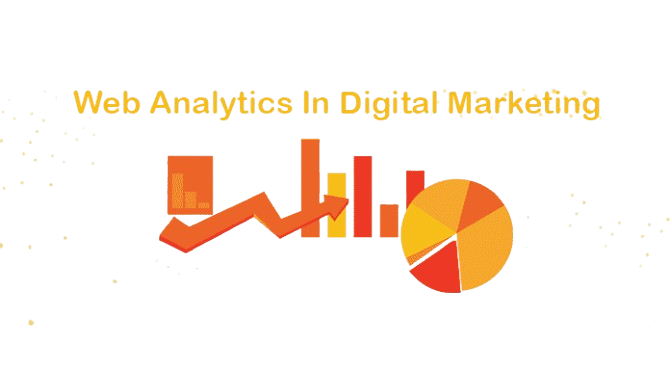Discover the importance of web analytics in digital marketing. Learn how tools like Google Analytics and IBM Coremetrics help track website performance, improve SEO, measure online advertising, and boost ROI through data-driven strategies.
Introduction
In today’s digital world, understanding your audience is the key to success. Web analytics in digital marketing helps businesses measure, analyze, and optimize their online performance. From tracking website visits to monitoring conversions, web analytics allows marketers to make data-driven decisions that improve engagement and ROI.
Whether you are using Google Analytics, IBM Coremetrics, or other web analytics tools, the insights you gain can transform your digital marketing strategy.
What Is Web Analytics?
Web analytics refers to the process of collecting, analyzing, and reporting website data to understand user behavior. In simple terms, it tells you who visits your website, how they got there, what they do, and when they leave.
Web Analytics Definition
Web analytics means analyzing digital data from websites and online platforms to improve marketing and user experience.
Website Analytics Definition
Website analytics is the method of measuring and interpreting user interactions to enhance site performance and achieve marketing goals.
Importance of Web Analytics in Digital Marketing
It is impossible to exaggerate the significance of web analytics in digital marketing.It provides valuable insights that help marketers:
- Understand visitor behavior
- Measure campaign effectiveness
- Optimize SEO and paid advertising
- Improve website performance
- Boost conversion rates
By analyzing data from tools like Google Analytics, businesses can identify which digital marketing channels drive the most traffic and sales.
Benefits of Web Analytics
- Data-driven Decisions: Analytics helps remove guesswork from marketing.
- Better ROI Tracking: You can measure the performance of campaigns and channels.
- Enhanced SEO: SEO and web analytics work together to refine keyword strategies.
- Improved User Experience: Website analytics shows where visitors drop off, helping you optimize content and navigation.
- Performance Measurement: Web analytics measures online advertising analytics, social media, and content marketing effectiveness.
Web Analytics Tools in Digital Marketing
There are many web analytics tools available for marketers. Each tool offers unique insights into digital performance:
1. Google Analytics
The most widely used digital marketing analytics tool, Google Analytics tracks website visitors, conversions, and campaign data.
Example: An eCommerce brand can use Google Analytics to find which product pages have the highest bounce rate and optimize them for better engagement.
2. IBM Coremetrics
A powerful enterprise-level analytics platform used by large organizations for web marketing analysis, customer segmentation, and campaign optimization.
3. Adobe Analytics
Provides advanced digital analytics data with AI-based insights for marketers focusing on personalization.
Role of Web Analytics in Digital Marketing
The role of web analytics is to connect marketing actions with measurable outcomes. It helps marketers understand which digital efforts bring results and where improvements are needed.
For example, if a business runs Google Ads, SEO, and social media campaigns, web analytics can show which platform contributes most to conversions.
Key Areas of Focus
- SEO and Web Analytics: Analyze keywords, traffic, and backlinks.
- Social Media Analytics: Track engagement and campaign reach.
- Online Advertising Analytics: Measure ad impressions, clicks, and conversion rates.
Website Analysis in Digital Marketing
A website analysis involves evaluating technical, design, and content elements to improve visibility and user experience.
Example: A travel website can use web analytics to see which destinations get the most clicks and create more targeted blogs or offers around them.
Website Analytics Strategy
A good website analytics strategy includes:
- Setting up KPIs (Key Performance Indicators)
- Using multiple analytics tools
- Monitoring traffic sources
- Tracking user journeys
- Regular performance reviews
Digital Marketing, SEO, and Web Analytics
Modern marketers integrate digital marketing, SEO, Google Ads, and Google Analytics to create unified campaigns. This combination ensures that every marketing dollar is tracked and optimized.
Example:
A digital marketing agency can use Google Analytics to measure traffic from SEO and PPC campaigns, identifying which keywords or ads perform best.
Advantages and Benefits of Website Analytics
- Understand your audience – who they are and what they want.
- Measure marketing success – see which strategies work.
- Improve conversions – analyze landing page performance.
- Enhance customer retention – study returning visitor behavior.
Web Analytics Best Practices
- Define clear goals and KPIs.
- Use Google Analytics 4 or similar tools for deeper insights.
- Integrate web analytics with CRM and advertising platforms.
- Conduct A/B testing regularly.
- Review data weekly for actionable insights.
Web Analytics Careers
With growing demand for data-driven marketing, careers in web analytics and digital marketing are booming. Roles include:
- Digital Marketing Analyst
- Web Analytics Specialist
- SEO & Analytics Manager
- Data Visualization Expert
Conclusion
Web analytics in digital marketing empowers businesses to make smart, data-backed decisions. Whether you’re tracking SEO, social media, or online advertising analytics, using tools like Google Analytics and IBM Coremetrics helps you optimize performance and achieve growth.
In short, web analytics is not just about numbers — it’s about understanding people, improving strategy, and turning insights into action.
FAQs
1. What is web analytics in digital marketing?
Web analytics is the process of collecting and analyzing website data to measure the effectiveness of digital marketing campaigns.
2. Why is digital analytics important?
Digital analytics helps marketers make informed decisions, optimize performance, and improve ROI.
3. What are the two main types of web analytics?
The two main types are on-site analytics (user behavior on your site) and off-site analytics (external factors like social mentions and backlinks).
4. How does Google Analytics help in digital marketing?
Google Analytics tracks user activity, campaign performance, and traffic sources, allowing marketers to optimize campaigns effectively.
5. What are the benefits of website analytics?
It helps improve website design, content quality, SEO, and overall digital marketing performance.
My Personal Opinion
From my experience, web analytics is the backbone of any successful digital strategy. Without tracking data, you’re marketing in the dark. I’ve found that combining Google Analytics, SEO tools, and content metrics provides a complete view of performance. It’s not just about measuring it’s about learning and improving continuously.



0 Comments